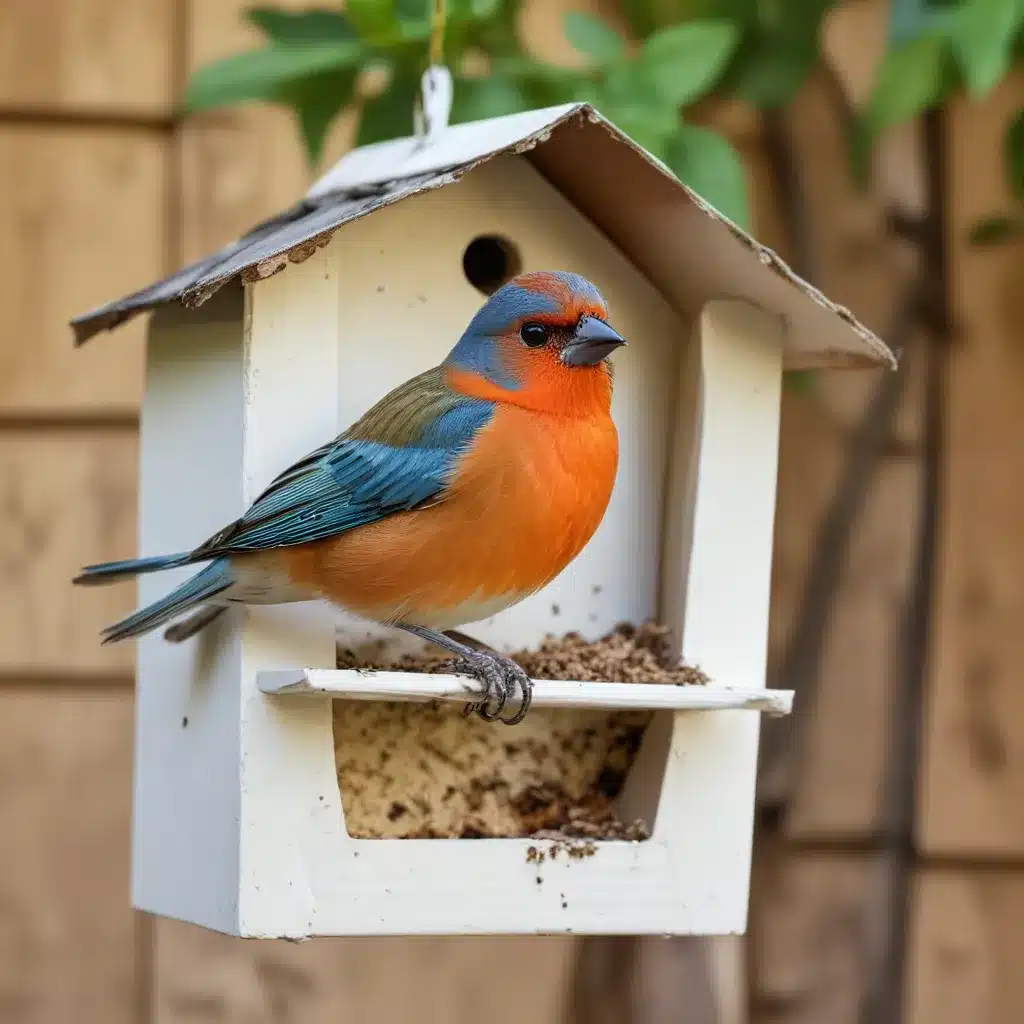
As an experienced avian caretaker, I understand the importance of providing a safe and nurturing environment for our feathered friends. Our beloved birds possess an extraordinary sensitivity to their surroundings, making it crucial to bird-proof our homes and eliminate potential hazards. In this comprehensive guide, we’ll explore the common household dangers to birds and share practical strategies to create a secure and enriching space for your avian companions.
Avian-Friendly Home Design
Accessible Windows and Doors
One of the primary concerns in bird-proofing your home is ensuring your feathered friends can safely navigate their environment. Curious birds may mistake windows and glass doors for open spaces, leading to potentially fatal collisions. To mitigate this risk, consider installing window decals, stickers, or screens to make these surfaces more visible. Additionally, keep doors closed when not in use, and consider using door-mounted chimes or bells to alert you to any attempted escapes.
Secure Outdoor Spaces
For those fortunate enough to have an outdoor aviary or patio space for their birds, it’s essential to ensure these areas are completely secure. Carefully inspect for any gaps or openings where a determined bird could squeeze through, and reinforce with sturdy mesh or netting. Remember, even the most well-trained birds can sometimes succumb to their natural instincts and attempt to fly away, so leaving no room for escape is crucial.
Perch Placement
When setting up your bird’s living space, be mindful of the placement of perches, toys, and other items. Avoid positioning them too close to windows, mirrors, or doors, as this can encourage risky behaviors. Instead, strategically arrange these elements to encourage natural, safe movements and exploration within the confines of the cage or play area.
Common Household Hazards for Birds
Toxic Substances
One of the most significant threats to our feathered friends is the presence of toxic substances in the home. From common household cleaners and air fresheners to certain foods and plants, many items that we take for granted can pose a grave danger to our birds. Familiarize yourself with the long list of toxic items, and ensure they are stored securely out of reach. When cleaning, opt for bird-safe products or natural alternatives, and always provide ample ventilation.
Entrapment Risks
Curious birds are drawn to investigate their surroundings, often leading them into precarious situations. Open containers of water, such as toilets or sinks, can pose a drowning hazard, as birds often lack the ability to escape these confined spaces. Likewise, loose threads, strings, or small parts can become entangled, potentially causing injury or strangulation. Regularly inspect your bird’s environment and secure or remove any potential entrapment risks.
Electrical Hazards
Birds’ natural tendency to chew can make electrical cords and outlets a significant concern. Exposed wires can lead to devastating electrical burns or even electrocution. To safeguard your bird, conceal all cords and wires, and consider using protective covers or sheaths. Additionally, be mindful of ceiling fans, which can pose a serious threat to flying birds if not properly secured or turned off when your feathered friend is out of the cage.
Avian Nutrition and Feeding
Appropriate Bird Food
Providing a balanced and nutritious diet is essential for your bird’s overall health and well-being. Steer clear of the common pitfall of an all-seed diet, which can lead to nutritional deficiencies and a range of health issues. Instead, opt for a high-quality, formulated bird pellet as the foundation of your bird’s meals, and supplement with fresh fruits, vegetables, and occasional treats. Always research the safety of any human foods before offering them to your avian companion.
Clean Feeders and Waterers
Maintaining clean and hygienic feeding and watering stations is crucial for your bird’s health. Regularly wash and disinfect their food and water bowls, ensuring no residual cleaning agents or bacteria remain. Additionally, be mindful of the placement of these items, keeping them away from any potential sources of contamination, such as litter or perching areas.
Seasonal Feeding Considerations
As the seasons change, it’s essential to adjust your bird’s diet accordingly. In the colder months, your feathered friend may require additional calories to maintain their body temperature, so consider providing nutrient-dense foods or supplementing their diet. Conversely, during warmer weather, lighter and more hydrating options may be more appropriate to keep your bird comfortable and healthy.
Promoting Bird Health and Well-Being
Veterinary Care
Establishing a relationship with an avian veterinarian is one of the most important steps in ensuring your bird’s long-term health and well-being. These specialized practitioners can provide routine check-ups, preventive care, and prompt treatment for any medical issues that may arise. Regular vet visits can help catch potential problems early and ensure your bird remains in optimal condition.
Enrichment and Stimulation
Keeping your bird mentally and physically engaged is crucial for their overall happiness and well-being. Provide a variety of toys, perches, and foraging opportunities to encourage natural behaviors and prevent boredom. Rotate these items regularly to maintain your bird’s interest and prevent the development of unwanted habits, such as feather-plucking or excessive screaming.
Safe and Comfortable Surroundings
In addition to eliminating potential hazards, it’s essential to create a comfortable and stress-free environment for your feathered friend. Ensure their living space is well-ventilated, with appropriate temperature and humidity levels. Consider the placement of their cage, keeping it away from high-traffic areas and drafts. By catering to your bird’s natural needs and preferences, you can help them thrive and enjoy a long, healthy life.
By implementing these bird-proofing strategies and maintaining a vigilant eye on your avian companion’s well-being, you can help ensure your feathered friend’s safety and happiness within the comfort of your own home. For more information and resources on avian care, be sure to visit the Mika Birds Farm website, where you’ll find a wealth of expert-curated content to support you on your journey as a responsible and caring bird owner.


